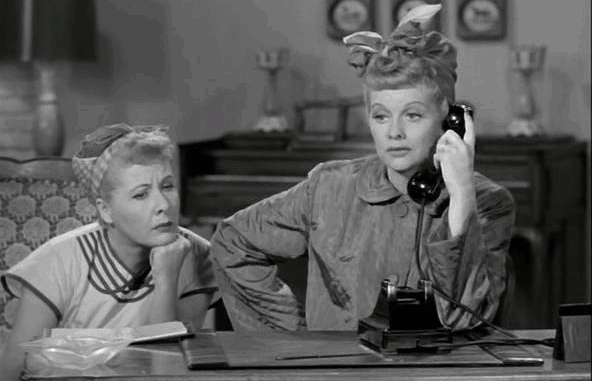
Before Ross and Rachel, before Jim stared into the camera, there was a redhead with a wild imagination and a knack for turning the simplest situation into chaos. Her name was Lucille Ball, and long before sitcoms became a cultural force, she rewrote the rules of television — and in the process, changed everything.
A TV Landscape Ready for a Spark
When I Love Lucy premiered in 1951, television was still young. Most programming was live, often clumsy, and limited to local audiences. The idea of a sitcom as we know it — polished, structured, filmed for posterity — didn’t exist.
Then came Lucy. Alongside her husband, Desi Arnaz, she brought I Love Lucy to CBS, not just as another comedy, but as a production revolution. They insisted on filming in Hollywood instead of New York, using multiple cameras, and capturing each episode on film rather than kinescope. It wasn’t just for better quality — it was so their work could live on. And live on it did.
Comedy Without an Expiration Date
While Friends and The Office became known for their ensemble banter and workplace awkwardness, Lucy Ricardo thrived on physical comedy, fast pacing, and bold storylines that pushed 1950s boundaries.
She wasn’t the demure housewife TV audiences were used to. Lucy chased stardom, tricked her way into Ricky’s nightclub acts, and caused chaos in the name of fun. She was messy, determined, and unapologetically herself — traits that still feel fresh today.
Scenes like Lucy and Ethel in the chocolate factory, stomping grapes in Italy, or stuffing herself with vitamins have been passed down like family heirlooms, replayed and reimagined across generations.
The Blueprint for Modern Sitcoms
Without I Love Lucy, the DNA of modern sitcoms would be unrecognizable. The three-camera setup? Lucy and Desi perfected it. The concept of a “rerun”? Born from their decision to film each episode. Syndication deals that made shows like Friends and The Office billion-dollar properties? Lucy pioneered that too.
Even the idea of blending romance, friendship, and comedic workplace hijinks was there — only Lucy’s “workplace” was often her own living room.
A Global Legacy
More than 70 years later, I Love Lucy still airs daily in syndication and on streaming platforms. Its reach is global, its humor ageless. For many young viewers, Lucy’s episodes appear in the same watchlist as Friends and The Office — proof that her style of comedy holds its own in any era.
It’s not nostalgia alone that keeps Lucy alive; it’s relevance. Her timing, her fearlessness, her ability to make failure look like victory — those qualities inspire modern actors and comedians, from Tina Fey to Amy Poehler, who openly credit her as a trailblazer.
Before Anyone Else, There Was Lucy
When you watch a group of friends hanging out in a coffeehouse or coworkers enduring awkward meetings, you’re seeing the echoes of a legacy born in the 1950s.
Before Friends, before The Office, there was Lucy. She didn’t just make people laugh — she showed television what it could be. And seven decades later, she’s still teaching it.
